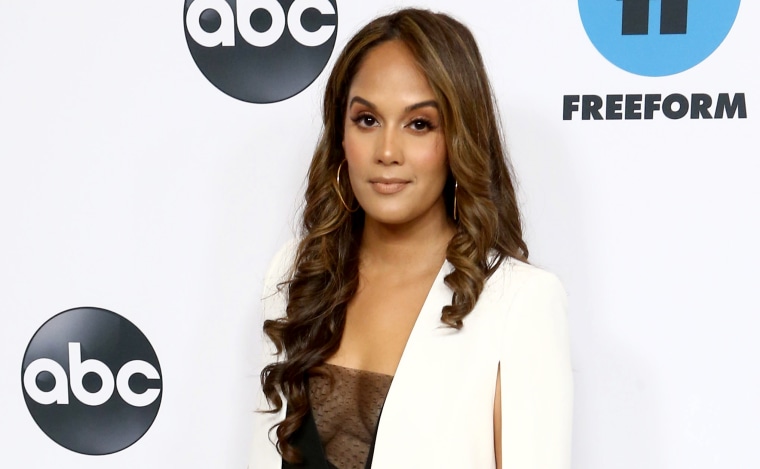Television producer and writer Ranada Shepard’s story is finding its way onto the small screen in the new Kenya Barris (“Black-ish,” “Grown-ish”) comedy set to air on ABC’s Freeform.
Shepard is the creator of “Born Again Virgin,” which premiered on TV One in 2015. Last year, she was hoping to land a writing job on ABC’s “Black-ish.” However, not landing that gig led her down a different path.
“They said you didn’t get the job,” she told NBCBLK in a recent phone interview. “But Kenya is interested in you for a straight-to-series [show] about the quarter-life crisis, a companion piece to ‘Grown-ish.’”
The new show, which is currently untitled, stars actress and singer Jordin Sparks, and starts filming in March. It is about two women who find out they are half-sisters after a DNA test. Shepard is excited to be working on a TV series again, especially since it is largely based on her real-life experience.
Born and raised on Chicago’s South Side, Shepard had a big family and a secret that would begin to reveal itself on the playground when she was in second grade.
“My mom’s No. 1 rule was -- you don’t let anybody play in your hair,” Shepard said. The rule seemed simple enough but would be broken while she was making new friends at school. What she thought was an innocuous interaction was cut short by her cousin’s words, “You can’t play in my cousin’s hair!” Her new friends pointed out that her cousin had “white in her,” so they couldn’t possibly be related. The feeling and questions from that moment stuck with her.
“I asked my mom, ‘What am I?’” and she said ‘Girl, you’re a child of God,” Shepard recalled.
Just before she left Chicago to attend college at the University of Nevada, Las Vegas, she found a piece of paper that was folded and stapled in her mother's dresser drawer. Something about it was intriguing.
“I thought, man, I want to open this, but if I open it, I can’t get it sealed again,” she thought before ripping it open.
It was a certificate of adoption.
Shepard says it was like the moment you find out your partner’s cheating on you and every little thing that didn’t make sense before comes into clear focus.
Shepard compares the moment to when a person finds out about a partner's cheating — every little thing that didn’t make sense before comes into clear focus.
“I went back to those moments thinking ‘That’s what that was,’” Shepard said. It was a secret revealed in a most unexpected way; she kept it to herself for months, not wanting to hear about her snooping from her mom.
“Like anybody who has a black mother, I was scared to call her out,” she said.
Shepard confronted her mother on a trip home for spring break.
“I said, 'Mom, I have something to tell you,'” Shepard said. “‘She’s like ‘You’re pregnant!?’ ‘No, I’m adopted.’” After her mother's initial shock at her words and anger about her snooping, Shepard insisted on knowing the truth.
With a closed adoption keeping her from finding out more about her biological family, she began asking questions. She spent years thinking she was “just black and white” because that’s what people had always told her on the street. But when laws about closed adoptions changed, she got a little bit of insight into the family she’d never known.
She found out she had a clean bill of health by seeing her family history of disease, which was a relief. Then she found that she had brothers, a grandmother, an aunt. When she was told they could possibly be found, she signed up to find them. Eventually, she received a call from her brother, whose voice immediately jarred her because ”he sounded Mexican.” He was shocked because, according to him, she “sounded black.”
Shepard found out that her mother, Maria, was a Cuban refugee, making Shepard a first-generation Afro-Cuban American. When she finally met her new, biological family members she said it was the first time she’d “looked like other people.”
Maria told her that her father was a dark-skinned black man, like Shepard’s husband, television writer Devon Shepard (“Dear White People,” “Being Mary Jane”). But Shepard learned from a home DNA test, that he was actually not her father. She later found out her father was also a Cuban refugee and she met him and his family in the last year.
Fast forward to today, Shepard is leading a new show that’s about discovering family members you never knew existed. She’s most excited about using her own experience to inform the characters on her new show. She says Sparks was the obvious choice to tell this story.
“I’m so excited to have Jordin Sparks on this series, she’s so so great,” Shepard said. “She came in and it was her, we knew right away.”

